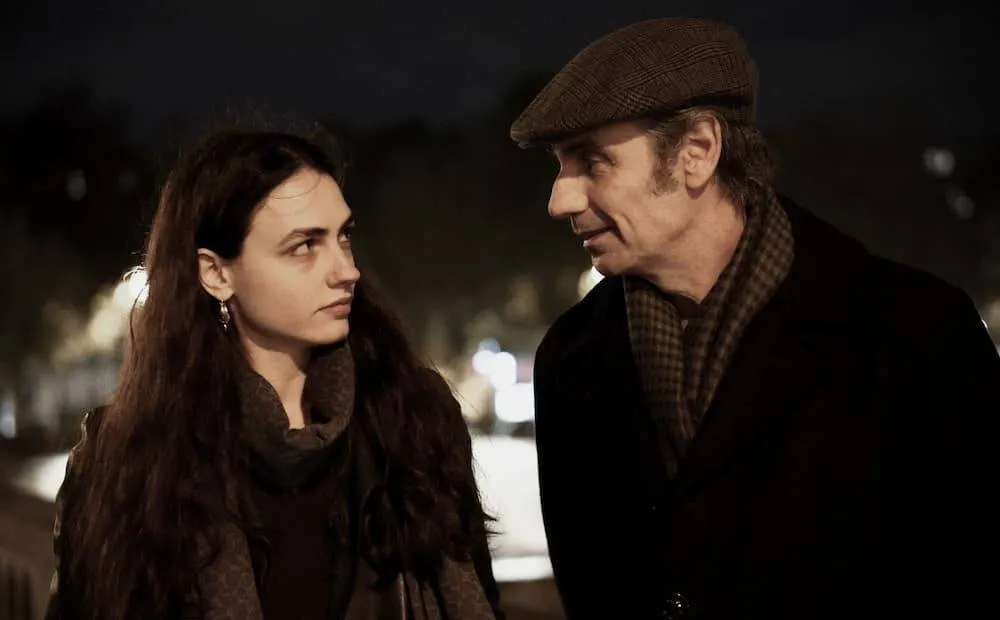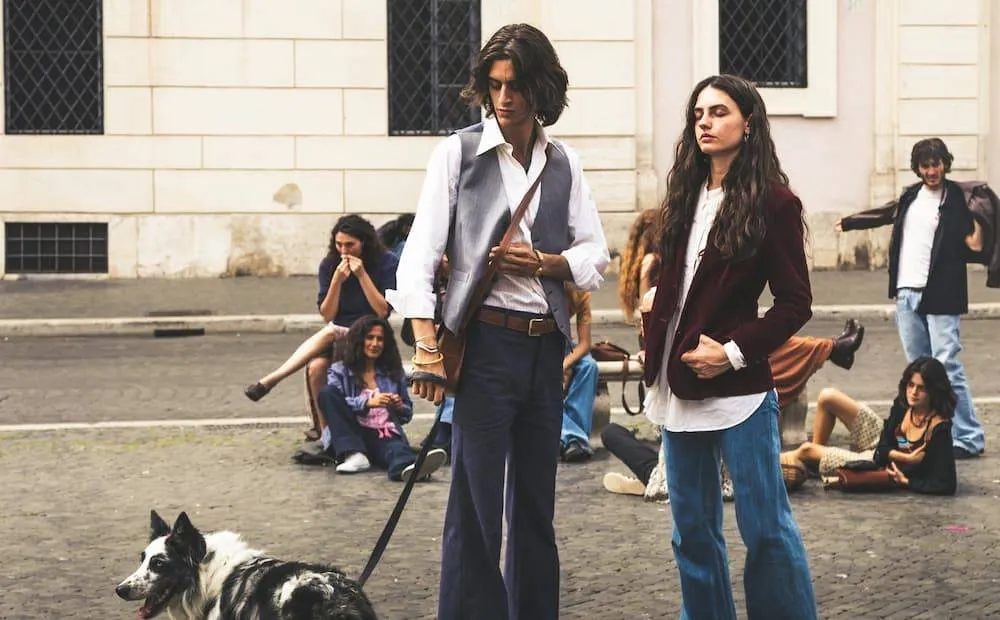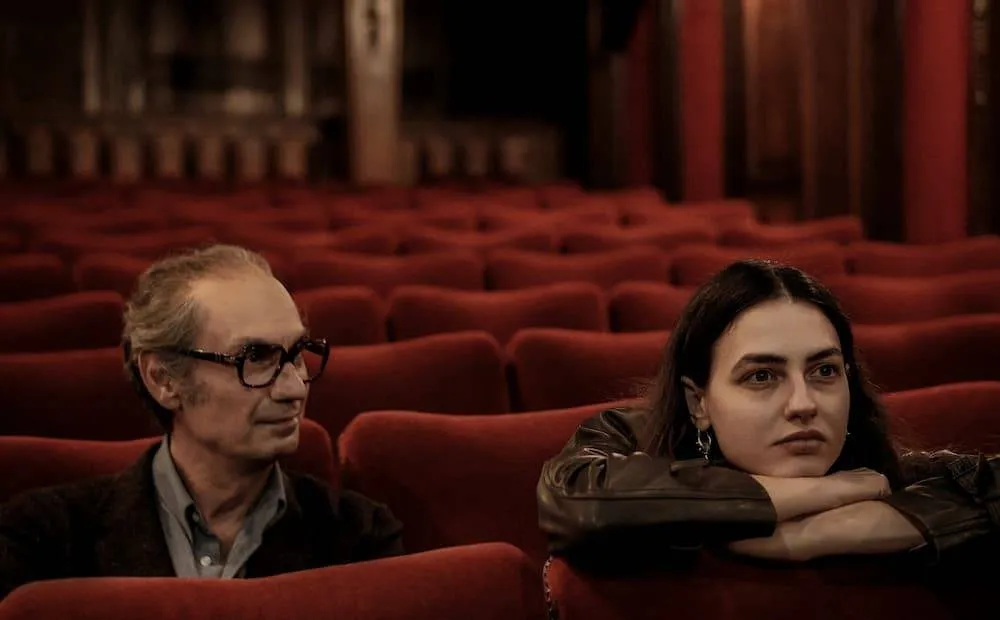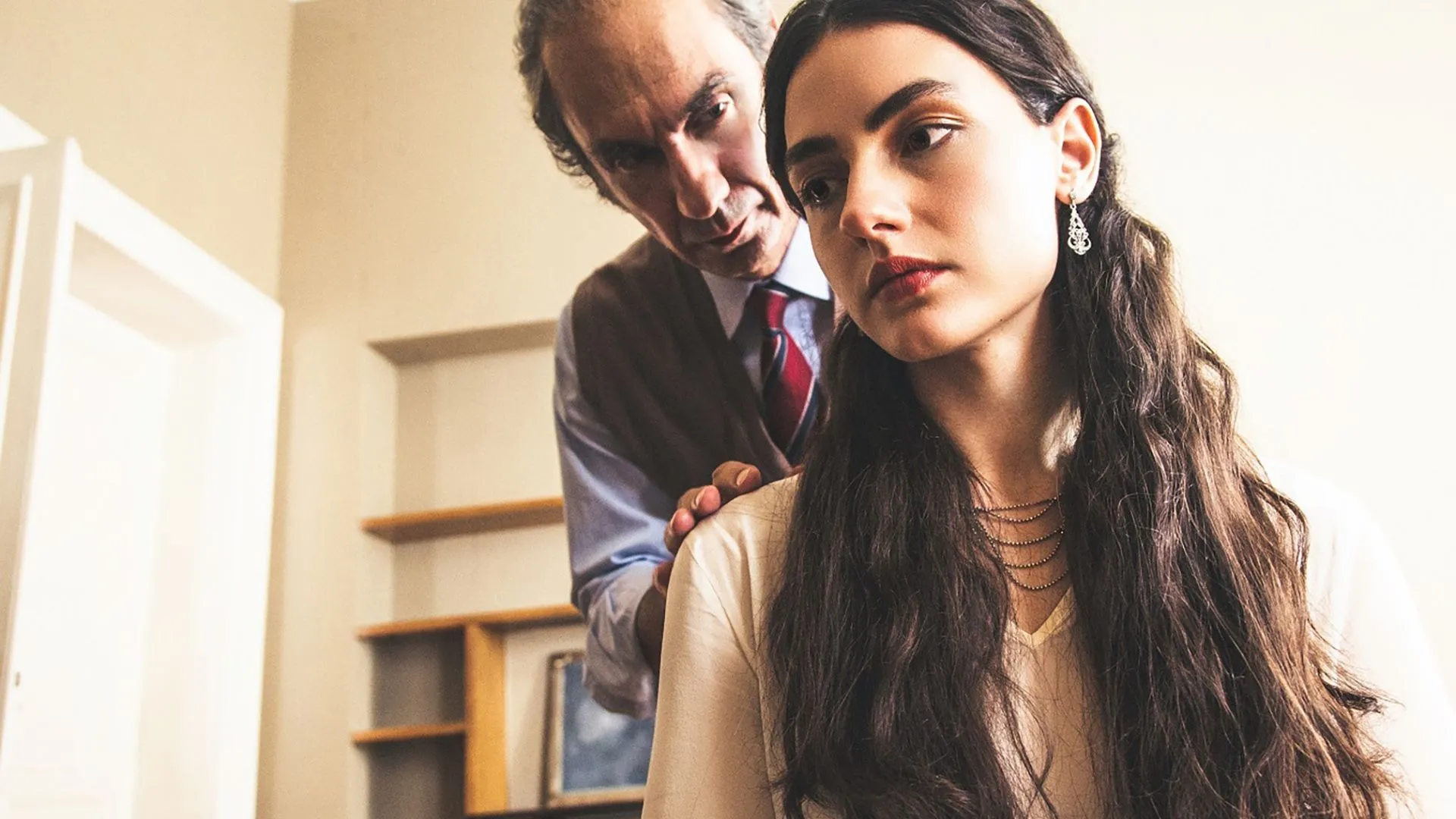Growing up surrounded by cinema and immersed in her father’s celebrated film career, Francesca Comencini found her early passion for the craft. In her adulthood, the acclaimed director has now crafted The Time It Takes, an intimate film reflecting on the profound influence of her renowned father, Luigi Comencini.
We meet Francesca as a young girl fascinated by the bustling energy of her father’s film sets. With natural ease, Luigi involves his daughter in the creative process, sharing his joy of storytelling. For Francesca, these early experiences ignite a lifelong love of cinema.
As she comes of age in turbulent times, Francesca struggles with finding purpose amid political unrest and social changes. She drifts away from the magic of film and into rebellion, until confronting personal demons with help from her stern yet compassionate father.
Crafted from a place of raw sincerity, The Time It Takes offers glimpses into the unusual yet close bond between these complicated individuals. Director Comencini invites us into intimate scenes exploring her evolving relationship with Luigi, framed by recollections of their mutual passion for the moving image.
While certain to resonate strongly with fans familiar with this storied film family, the film achieves emotional resonance through celebrating the power of parental support and how it can guide us through life’s difficult seasons.
The Bonds of Family
The Time It Takes traverses Francesca Comencini’s journey from wide-eyed child to troubled young woman, centered around her relationship with renowned filmmaker Luigi. Director Comencini crafts a nonlinear narrative, transporting us from Francesca’s 1970s childhood, immersed in her father’s work, to her turbulent teenage years grappling with the social unrest of the time.
We meet the eager young Francesca, simply known as “Child,” on vibrant film sets, soaking in her father’s creative process. Newcomer Anna Mangiocavallo imbues the role with natural curiosity. Luigi, embodied thoughtfully by Fabrizio Gifuni, shows a gentle devotion to his craft and a way with children that inspires young Francesca.
But as the years pass in non-chronological fashion, Romana Maggiora Vergano evolves the character into a brooding, lost soul seeking purpose. Her nuanced performance conveys the turmoil of a woman drifting from the only world she’s known.
Luigi too changes before our eyes—Gifuni blending dedication with the frustration of a man struggling to understand the daughter slipping away. We come to realize the complex Father he was—stern yet caring in his own way.
Absent are other relatives, focusing our gaze solely on the bond between these two talented but complicated individuals. Through it all, their dedication to film remains a tie that only grows more strained as Francesca searches for identity apart from her father’s shadow.
In two superb central performances, the film probes the heart of family relationships and how loving bonds can become strained as children spread their wings—often needing room to return safely when life’s storms arise.
Bonds Tested Through Life’s Journey
Beneath The Time It Takes lies a profound exploration of the father-daughter bond and how growing up shapes one’s understanding of loved ones. From a young age surrounded by film, Francesca found joy in her father’s art and the closeness it fostered. But as she sought purpose beyond living in Luigi’s shadow, cracks formed in what once felt unbreakable.
Comencini sketches Francesca’s battles with identity—who does one become when attached for so long to another’s light? Her drift toward drugs and radical politics reflects the unsettled spirit of Italy during that turbulent era, as she grasped for meaning among peers. Once so sure of cinema’s magic, it became a reminder of what she wasn’t, distancing herself from the past.
Yet for Luigi, his work defined an existence and way of seeing the world he struggled to share as times changed. Parkinson’s further silenced a voice used to expressing all facets of life through film. As their ways divided, an unspoken gulf emerged between intentions and understanding.
The tensions of growing independence clashing with deep-rooted bonds shape their journey in poignant, often heartbreaking ways. But through it all, their dedication to the moving image remained a tie not even distance could sever—a theme of hope that one’s passions may outlive life’s complex seasons. In tracing these intimate struggles, Comencini finds profound wisdom on the resilience of love through life’s challenges.
A Directorial Voice and Vision
Francesca Comencini brings a deeply personal touch to fully immerse us in the intimate world of her film. Through her direction, one truly feels the intimate nature of recalling formative life events. With great skill, Comencini transplants us between time periods through elegant nonlinear storytelling.
Luca Bigazzi’s cinematography plays a vital role in transporting the viewer. He breathes vibrant life into differing eras, from the bustling energy of film sets to turbulent late-70s streets. Subtle details lend authenticity to immerse us in the places and times that shaped these characters.
Comencini’s incorporation of her father’s classic films within the narrative is a stroke of brilliance. Not only does it showcase Luigi’s passion and influence, it folds these cherished works directly into the fabric of the story. Iconic moments become woven together with Francesca’s memories in a moving montage.
Repetitive motifs like Pinocchio imagery take on new resonance, subtly underscoring key themes. A flash of whimsical illustrations amid cityscapes speaks volumes without words. It’s in these artistic choices that Comencini’s directorial prowess shines through, bringing viewers fully into the film’s most intimate spaces.
Through her personal lens, Comencini invites us on a poignant journey of reconsidering the past. In both visuals and structure, she draws us deeper into this family’s world, their cinematic roots, and the evolution of a lifelong bond across generations.
Bringing Memories to Life
At the heart of any story are the characters, and in The Time It Takes, two standouts emerge who make this deeply personal journey profoundly moving.
Fabrizio Gifuni brings nuance to Luigi at each stage of life. We witness the celebrated director’s passion, followed by frustration as his daughter drifts away. Gifuni captures the subtleties, whether commanding respect on bustling sets or exchanging quiet moments of understanding with young Francesca.
As the daughter grows, Romana Maggiora Vergano takes us deftly through her phases of inquisitive youth to deep turmoil. Her performance conveys the fragility of a soul lost, grasping for meaning in a changing world. In raw scenes confronting addiction with Luigi, she leaves one unable to look away from their shared vulnerabilities laid bare.
Among newcomers, Anna Mangiocavallo debuts with remarkable poise as a child soaking in life’s mysteries. Her natural charm brings to life the inquisitive eyes that first found joy in her father’s work.
Together, these luminous leads breathe heartbreaking authenticity into real people and the love that endured despite life’s complexities. Through their masterful work, Comencini shares hard-won insights to make past wounds feel blessedly present, if only for moments that will linger with all drawn into their moving orbit.
A Story Finds its Audience
The Time It Takes first captivated audiences at the 2024 Venice Film Festival, where critics praised Commencing’s raw honesty. By baring her family’s most personal dynamics, she crafted a work intimate yet impactful.
While this tale stems from Comencini’s uniquely autobiographical perspective, it taps into a trend of films illuminating directors’ formative years. Works like Roma and The Fabelmans have celebrated this style, attracting global interest. While The Time It Takes may not achieve such widespread acclaim, it resonates strongly with film buffs seeking nuanced portraits and cultural insights beyond blockbusters.
Festivals provide an ideal platform where this personal narrative gains context among those passionate about Italian cinema’s history. Through a masterful cast and visceral storytelling, Comencini crafts a moving memoir that will likely endure for appreciators of her craft and those wanting to understand society’s lasting influence on evolving relationships.
A Daughter’s Homage to Her Father’s Legacy
Through her own artful lens, Comencini has crafted an impactful tribute to recount a deeply personal family dynamic. Beyond probing her bond with Luigi, the film breathes life into appreciating the cultural roots of Italian cinema and the giants who shaped the nation’s identity with their passionate works.
By honoring the man who influenced her most with this poignant memoir, Comencini looks both inward and outward, granting viewers insight into her evolution while celebrating a father’s devotion to his craft. Her direction and subjects’ nuanced performances ensure The Time It Takes will endure as a moving reconsideration of how generations connect across the years, forging new paths while carrying past joys that continue to inspire.
Il tempo che ci vuole stands as one of Comencini’s finest efforts—a thoughtfully crafted homage recounting a father’s guidance that made all she has achieved possible. It deserves appreciation not only for preserving personal memories but also for showcasing artistic lineages that have shaped global culture and left impacts still felt today.
The Review
The Time It Takes
The Time It Takes offers a poignant glimpse into the enduring influences of family and how art can both memorialize private bonds while sharing slices of history. Director Comencini grants audiences a sincerely intimate portrayal of her evolving relationship with Luigi, balanced with celebration of his passion that colored her world. Through nuanced performances and visuals transporting us across time, the film endures as a moving memoir of personal joys and trials, as well as cultural lineages that continue inspiring new works.
PROS
- Intimate, personal storytelling conveying Comencini's deep relationship with her father
- Standout lead performances capturing the characters' humanity at different stages
- Visuals transport viewers effortlessly between time periods.
- Pays homage to Italian film culture through incorporating her father's classic works.
- Universal themes of familial bonds, following one's passion, and life's challenges
CONS
- Plot points may be lost on audiences unfamiliar with the Comencini family/films.
- Character names or details of other relatives could provide more context.
- The ending sequence feels slightly abrupt tonally compared to the rest of the film





















































